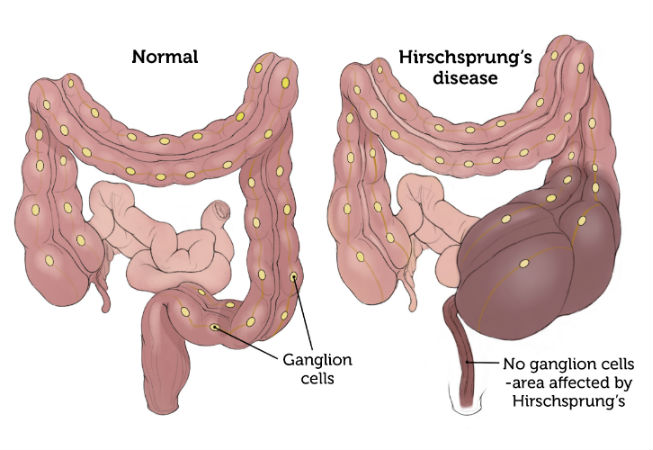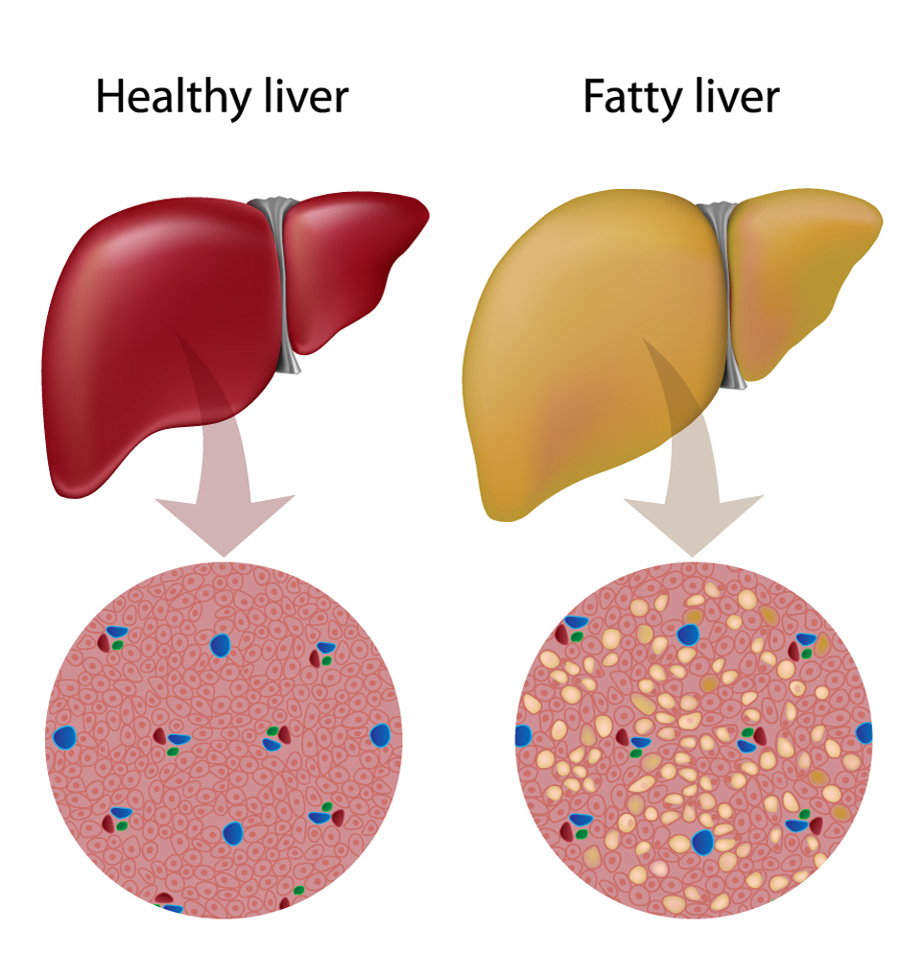Hirschsprung’s disease is a congenital condition that affects the colon (large intestine) and causes problems with bowel movements. The symptoms of Hirschsprung’s disease in infants and children can vary in severity but often include the following:
1. Chronic Constipation: One of the hallmark signs of Hirschsprung’s disease is severe and chronic constipation that begins in the newborn period or early infancy. Babies with Hirschsprung’s disease often strain when trying to have a bowel movement, and passing stool may be difficult and infrequent.
2. Failure to Pass Meconium: Meconium is the thick, dark, sticky stool that a newborn typically passes within the first 48 hours of life. Infants with Hirschsprung’s disease often fail to pass meconium within this expected timeframe.
3. Abdominal Distention: Due to the difficulty in passing stool and gas, babies and children with Hirschsprung’s disease may experience abdominal distention or swelling.
4. Vomiting: Some children with Hirschsprung’s disease may develop vomiting, which can occur when the bowel becomes obstructed due to the accumulation of stool.
5. Slow Weight Gain: Difficulty with feeding and the inability to pass stool effectively can lead to poor weight gain or failure to thrive in infants and young children.
6. Foul-Smelling Stool: Stool that is present may have an unusually foul odor, often described as “feculent” or particularly unpleasant.
7. Enterocolitis: In severe cases or when Hirschsprung’s disease goes untreated, there is a risk of developing enterocolitis, which is an inflammation of the intestine. This condition can cause symptoms such as fever, explosive diarrhea, abdominal pain, and lethargy.
It’s important to note that the severity and combination of these symptoms can vary from one individual to another. While some infants and children may have only mild symptoms, others may experience more severe complications if the condition is not diagnosed and treated promptly.
If you suspect that your child may have Hirschsprung’s disease or if they are experiencing symptoms such as chronic constipation, difficulty passing stool, or abdominal distention, it’s crucial to seek prompt medical evaluation. Early diagnosis and appropriate treatment are essential to prevent complications and ensure the best possible outcome for children with this condition.
For more information, consult Dr. Vedant Karvir the Best Gastroenterologist in Palghar Practicing at Globus Gastroenterology Hospital




